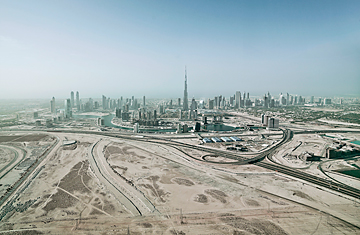
(3 of 3)
Right now the U.S. government spends hundreds of millions of dollars a year trying to uproot invasive species like the Burmese python in Florida and the Asian carp in Illinois, desperately working to restore or at least maintain "natural" ecosystems, even though there's growing evidence that nature is much more resilient than we have thought. As evidence, look to the ozone layer; the tear that our chlorofluorocarbons ripped in the sky over Antarctica started to shrink in 2011, years after those chemicals were phased out in most countries.
But managing the Anthropocene will necessitate more than simply banning certain pollutants or activities. It will also mean promoting the sort of technology that environmentalists have often opposed, from nuclear power--still the biggest carbon-free utility-scale energy source, despite the risk of accidents and the problem of radioactive-waste disposal--to genetically modified crops that could allow us to grow more food on less land, saving precious space for wildlife. It will mean privileging cities, because dense urban developments turn out to be the most sustainable and efficient settlements on the planet. And if we prove unable to quickly reduce greenhouse-gas emissions, we may be required to consciously fiddle with the climate through geoengineering, using artificial clouds or other planetary-scale technology to reduce the earth's temperature directly.
Of course, humans have been effectively geoengineering the planet for centuries. We were just doing it unconsciously, as a by-product of our relentless expansion. Humans aren't even the first species to create change on a planetary scale. The earth's atmosphere is oxygenated because cyanobacteria helped produce that gas more than 2 billion years ago. But even though cyanobacteria weren't conscious of what they were doing, we are, or at least we should be. Our ability to comprehend the full extent of the human impact on earth puts us in a unique position as planetary gardeners, a responsibility we have no choice but to take on. We have been lucky for much of our species' existence, blessed by the comfortably warm climate of the Holocene, able to spread our growing numbers across a seemingly limitless planet.
But that age is over, replaced by the uncertainty of the Anthropocene, whether geologists decide to formally call it that or not. We'll decide whether human beings continue to thrive or flame out, taking the planet down along the way. It may be an unhappy reality, because there's no guarantee that the Anthropocene--crowded with billions of human beings--will be as conducive to life as the past 12,000 years have been. "We are as gods," writes the environmentalist and futurist Stewart Brand. "And we have to get good at it."
Next: 10. Niche Aging By Harriet Barovick
